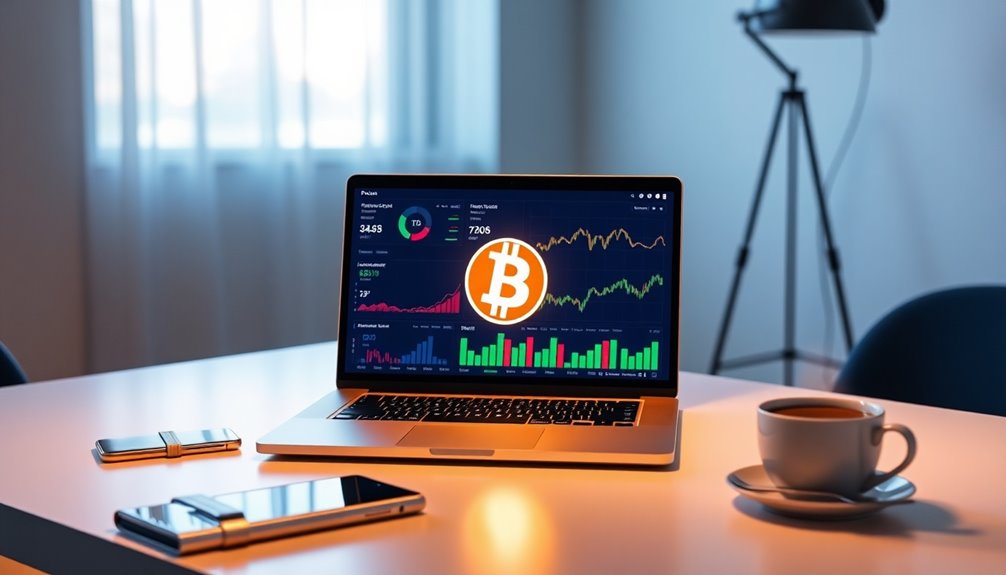Proton Mail's recent launch of a self-custodial Bitcoin wallet might just change how you think about cryptocurrency. With a focus on privacy and user control, this wallet offers a seamless experience on multiple platforms. Imagine sending Bitcoin using just an email address. This innovation raises questions about security and usability. What does this mean for the future of digital assets? You might want to consider the implications for your own financial strategies.

If you're looking for a secure and user-friendly way to manage your Bitcoin, the Proton Mail Bitcoin Wallet might be just what you need. Launched recently after a successful early access program, this wallet is now available on iOS, Android, and the web, making it accessible for everyone.
With its self-custodial design, you maintain full control over your Bitcoin, eliminating the need for intermediaries. This feature alone can give you peace of mind, knowing that you're the sole custodian of your digital assets. Self-custodial wallets provide full control over Bitcoin without third-party trust, enhancing privacy and security through self-sovereignty and peer-to-peer transactions.
Privacy is a top priority for Proton Wallet, which employs end-to-end encryption to safeguard your sensitive data. This means your information is encrypted on your device before it ever reaches Proton's servers, ensuring that only you can access it.
Currently, the wallet supports Bitcoin exclusively, but there are plans to integrate other currencies based on user demand. This focus on community feedback drives its development, making it a wallet that evolves according to your needs.
One of the wallet's standout features is the ability to send Bitcoin using just an email address. This innovative approach enhances user experience and privacy, making transactions straightforward and accessible.
Security measures are robust, utilizing advanced encryption techniques paired with a self-custodial model to ensure you retain control over your private keys. Plus, the wallet's open-source code allows for independent verification of its security claims, adding another layer of trust.
Proton Wallet also introduces the Proton Sentinel, an advanced security system that combines machine learning with human analysis to protect your account. You can even import your Bitcoin to other wallets using a standard 12-word seed phrase, ensuring flexibility and control over your assets.
With transaction metadata not stored on Proton servers, your transaction privacy is significantly enhanced.
The user experience is designed to be simple and efficient. The wallet streamlines the process of sending and receiving Bitcoin, handling the technical details behind the scenes.
As part of Proton's mission for financial freedom and privacy, the wallet aims to reach a global audience, and it's already garnered over 100,000 users during its early access phase.
If you're a current Proton Mail user, you can leverage your existing account for enhanced privacy and security. With future developments planned based on community feedback, Proton Wallet is poised to be a key player in the Bitcoin landscape.









